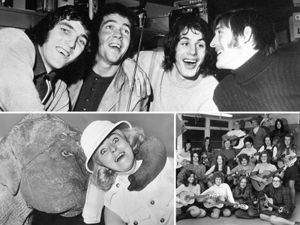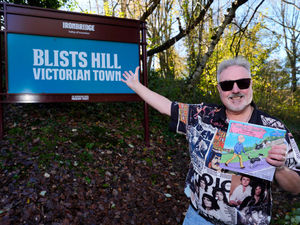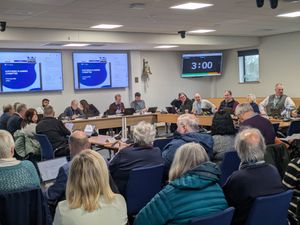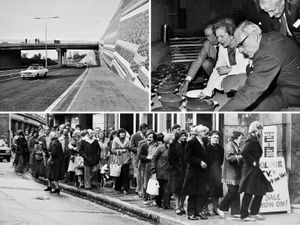Horror of Auschwitz still looms large, 75 years on
As Mindu Hornick made her way through the gates of Auschwitz with her older sister, the enormity of what she saw was too much to bear.
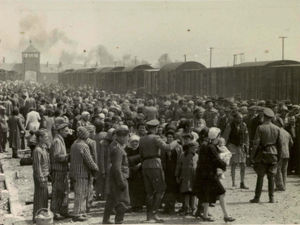
"We started to cry and said 'we're going to see our mother!'," she recalls in a faltering voice.
Her more streetwise inmates were quick to set the 12-year-old right.
"Don't be silly," they told her bluntly. "You're not going to see your mother again."
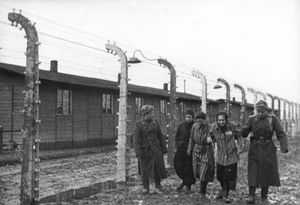
And, drawing her attention to the clouds of soot coming from the foul-smelling crematorium, one of them added: "See that grey ash falling? That's where they are going to go."
At this point, the young girl who had lived an idyllic life in small-town Czechoslovakia knew her life was never going to be the same again.
It is 75 years today since the Auschwitz concentration camp, and the adjacent Birkenau death camp, were liberated by advancing Soviet forces, laying bare the horrors of Adolf Hitler's reign of terror.
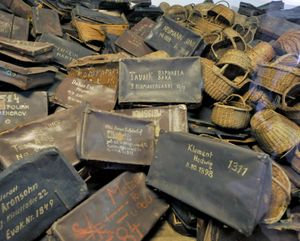
While the Allies were familiar with reports about atrocities committed by the Nazis in occupied Europe – Churchill had controversially resisted calls to bomb the camp – nothing could prepare the advancing forces for what they would see.
By the time the Russians reached Auschwitz, the Germans had already fled, having hurriedly dismantled as much evidence of the genocide as they could.
They took 65,000 prisoners with them as they beat their hasty retreat, setting fire to buildings, burning documents and destroying crematoria before they left.
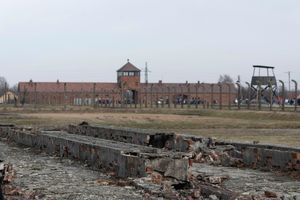
But the scenes that greeted the Russian troops on their arrival still came as a massive shock. About 1.1 million people had perished in the complex between 1940 to 1945, most of them Jews, and when the Russian soldiers made their way through the gates, they found the remaining prisoners strangely subdued and unreceptive.
A total of 7,000 prisoners were found alive in the three main camps, 500 in the other sub-camps, and more than 600 corpses.
Mindu and her sister were not among them. A bit of friendly advice from an older inmate, provided them with a lifeline and a route out of the camp, although at the age of 90 Mindu still bears the scars of her incarceration. Thoughts about what happened to her mother and two brothers never seem to be far from her mind.
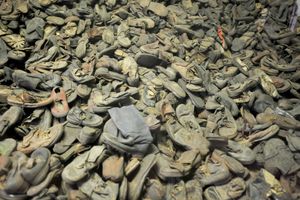
Growing up in the Slovak town of Tacova, she remembers playing in the grounds of the family home with older sister Eva, and two younger brothers.
"We lived in a small town with 25 other Jewish families, we lived in a lovely home with an orchard, and we had good relations with our neighbours and school friends," she says. "There was not anti-Semitism at that time."
Slovakia had been occupied by the Nazis since 1939, but it would be another two years before the persecution of the Jews began in earnest. "Everything changed in 1941," says Mindu. "Hitler gave the order that he didn't want any Jews left in Slovakia."
"We were told we had to go into a Hungarian school, and my father was recruited into the so-called army. This army of Jewish men had no uniforms, just an armband with the Star of David. They were made to dig the trenches and move the lorries for the German Army. After one visit, we did not see our father again."
In 1942 the family was driven to a ghetto in the city of Kosice, which had ceded to Hungary in 1938.
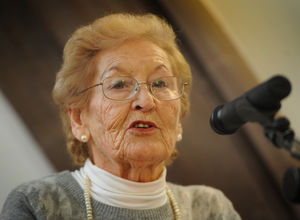
"We were torn out of our home, our little bit of security we had lost it," says Mindu, now living in Birmingham.
"After six weeks or more, we were rounded up like animals and put into cattle wagons. There were 70 of us in our wagon, including babies, children and the old. The wagon's doors closed and we were left in darkness.
"None of us had any knowledge of our destination, and as the long train began to move we fell into silence, our nightmare journey lasted three days and three nights, until we arrived at what we later found was called Auschwitz.
"I remember looking through one of the cracks in the carriage, the terrible frightening sight. SS marching around with guns and barking dogs."
As the doors to the wagon opened, pandemonium broke out. A strange-looking man in striped clothing jumped into the wagon, and asked Mindu her age.
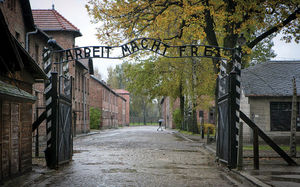
"I told him I was 12-and-a-half, he said 'you say you're 17'," she says. "My sister was two years older. 'You say you are 19'. And pushed us out. He said 'Go, go, go ahead, you'll see your mother later'." Her mother, who had been talking to the man in Yiddish, appeared to agree.
It was a lie that would save the lives of Mindu and Eva, but they would never see their mother or brothers again.
"The sight that greeted us beyond the selection gate will stay with me for the rest of my life," she says. "There were corpses everywhere, emaciated people in striped clothing wandering around. The smell from the burning crematorium, the dirt all around us, the entire area was surrounded by electrified barbed wire fences."
But they were the lucky ones. The selection gate was where the prisoners were sorted into the ones who were deemed useful by the German authorities, and the ones considered to be worthless. Those declared fit to work were directed to the left, where they would be put to work in the main Auschwitz concentration camp. Those judged too old, too young or too unfit, were sent to the right, where they faced immediate death in the gas chambers of neighbouring Birkenau. Her mother and brothers were directed to the right.
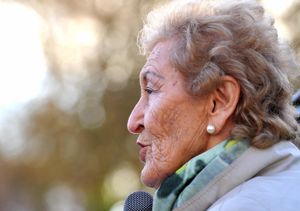
"The realisation that we would not see our mother or little brothers again is still hard to describe," says Mindu.
"We imagined our mother's anxiety in the short time from arrival to the gas chambers.
"You were hoping you would come out of it alive, and you couldn't possibly look beyond it. It was difficult to imagine."
After a night sitting on a cold stone floor in the overcrowded sleeping quarters, the sisters were subjected to a dawn roll-call, where some of them were selected for work, others to be killed. Mindu remembers Dr Josef Mengele, who became infamous for carrying out medical experiments on the prisoners, attending these roll-calls.
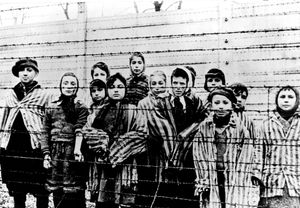
"He was always immaculately dressed in his shiny uniform," she says. While most SS doctors disliked having to carry out the selections, Mengele was noted for his chillingly jovial demeanour, often volunteering to take part even when he was not required.
After several months Mindu and Eva were transported to an underground ammunition factory in the woodlands. Whilst there they were exposed to dangerous working conditions, including having to pour boiling hot gun solution into containers without protective clothing, but at least it was not a death camp.
As the Nazi regime crumbled, the Jewish slaves were packed onto a train with their captors, not knowing whether their next destination would be their last. Tragically, unaware of the prisoners on board, allied troops bombed the train, killing half of them.
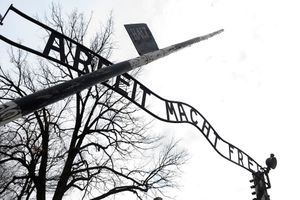
In the immediate aftermath of the Second World War Mindu and her sister returned to Prague in desperate hope to locate other survivors. But in 1948 she was forced to flee during the Soviet occupation, and came to live in Birmingham with an aunt and uncle.
She was appointed an MBE in the New Year's honours list, for two decades' work educating people about the horrors of the Holocaust.
The liberation of Auschwitz was not big news at the time. With the war still raging, the camp was not a priority for the Russians preoccupied with the advance towards Germany. It was not until the Allied liberation of Bergen-Belsen the following April that the true horrors of Hitler's Final Solution shocked the world.

